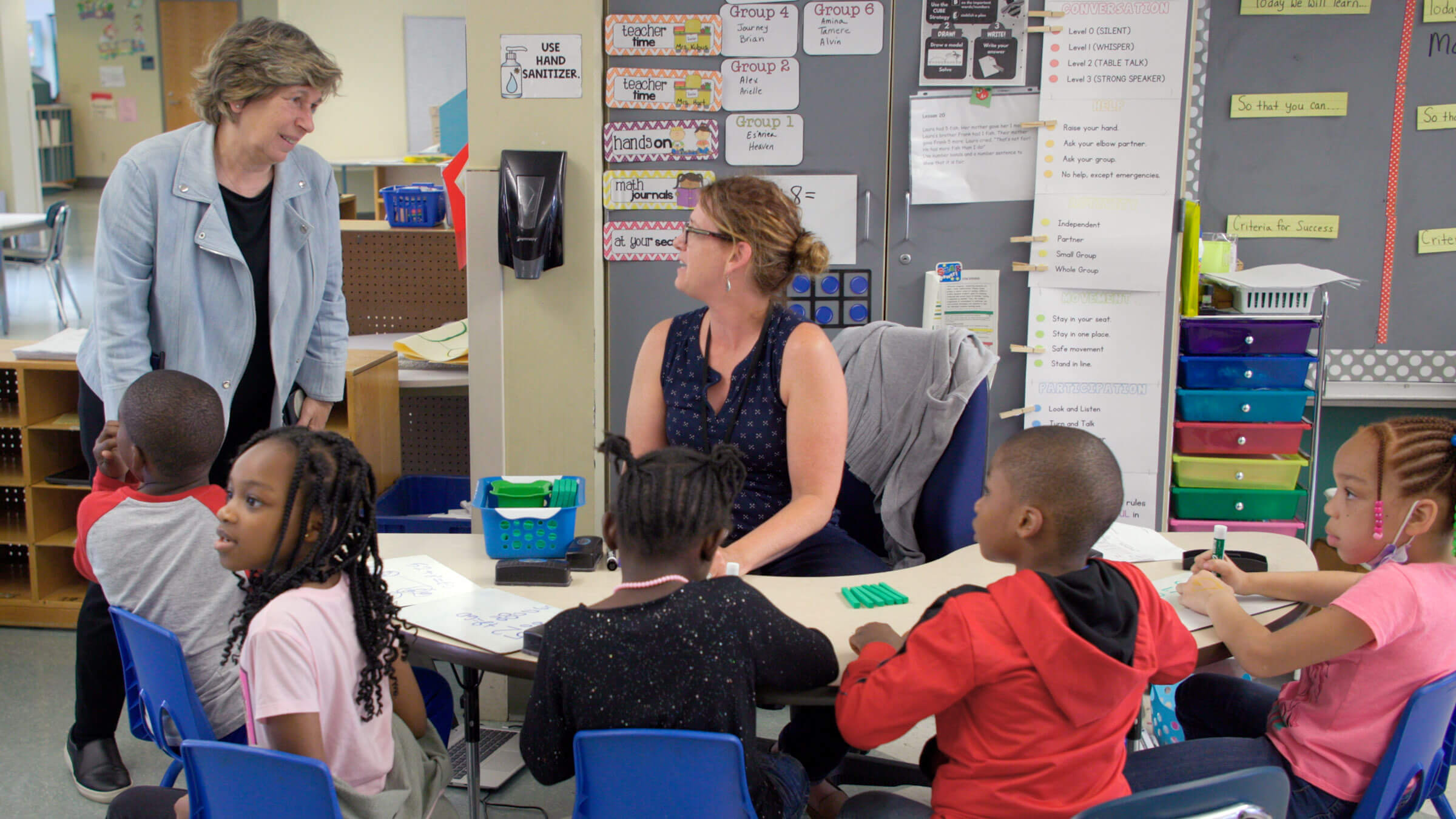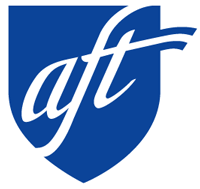Taking on teacher burnout
We must support teachers so they don’t feel the need to leave the profession and the students they love.

Weingarten, left, visits educators and students at Makowski Early Childhood Center in Buffalo, N.Y., on June 2, 2022. Photo by Adam Derstine
Educators, like their students, have always felt a mix of joy and jitters at the start of the school year. What’s different these days is the stress plaguing educators. Teachers are burned out. They are overworked and underpaid. Now more than ever, they are called on to be caregivers and crisis managers. Educators are depleted by the difficulties of the pandemic and demoralized by the creep of culture wars into education. All this is contributing to alarming teacher shortages.
But educator burnout is not inevitable. The American Federation of Teachers and Educators Thriving have identified ways to turn this around through strategies to reduce stress, improve well-being and support teachers and school staff so they don’t feel the need to leave the profession and the students they love. Our new report, “Beyond Burnout,” identifies research-based solutions to improve the chronic levels of stress and burnout afflicting educators, and it shows what can happen when these solutions are put into practice.
Educators Thriving developed an educator-generated gauge of well-being, in partnership with several AFT affiliates, with more than 1,300 educators taking the pilot survey. The findings suggest that educators are too often running on empty—half of them agree that “at the end of the day I’m too exhausted to do anything.” Yet 86 percent also agree that they “continually try to grow as an educator.” We can change the former and tap into the latter—and we must.
We then moved from identifying the issues to action. During the summer and fall of 2022, more than 200 educators in six districts engaged in professional development developed by Educators Thriving to promote well-being. Participants learned proven strategies to increase well-being, including identifying and leveraging strengths, clarifying goals, prioritizing, having difficult conversations, and learning about common pitfalls that can lead to burnout. They spent time in small groups connecting with fellow educators and using these strategies in their personal and professional lives.
This work had a huge impact: 92 percent of participants believed it made their job feel more sustainable, and 94 percent said it helped improve their well-being. Participants also reported that, over the next few months, they were less emotionally exhausted—a leading indicator of burnout. This is especially notable as many participants took the baseline survey during their summer break and took the end-of-program survey in October, which tends to be a high-stress month for educators.
This work demonstrates there are tools and strategies school communities can use to make teaching a more sustainable profession. But this responsibility cannot rest solely on educators. As the AFT’s recent Teacher and School Staff Shortage Task Force report, “Here Today, Gone Tomorrow?” notes, the teacher shortage is actually a shortage of respect for teachers and school staff. We have a shortage of the professional working conditions teachers and school staff deserve, conditions that allow them to do their best for their students. And there is a shortage of pay for what is arguably the most important job in the world.
Teachers feel it. Sixty-six percent of U.S. teachers who responded to a new, nationally representative Rand Corp. survey said their base salary was inadequate, compared with 39 percent of working adults in the United States. The survey also found that teachers worked more hours per week during the school year, on average, than all working adults—53 hours compared with 46. And many of those hours were uncompensated.
It should be no surprise that enrollment in teacher preparation has been declining sharply, beginning years before the pandemic. I hear it all the time: Parents love their children’s teachers, but they don’t want their children to become teachers. A 2018 PDK poll showed that, for the first time in 50 years, a majority of Americans opposed their own children becoming public school teachers—and that was before the pandemic and before extremists made schools a battleground in the culture wars.
Educators care deeply about their students, and they want what kids need. That’s why we launched the AFT’s Real Solutions for Kids and Communities campaign—promoting solutions and strategies we know will help our students thrive. The campaign focuses on the challenges students face today and helps create opportunities for tomorrow, starting with tackling learning loss and loneliness and making literacy, career pathways and affordable college national priorities. As part of this campaign, we’re running ads calling for real solutions over politics and toxic attacks.
Making a difference in kids’ lives is a calling for educators—and they want to be able to stay in their chosen profession. Here’s my challenge to policymakers and politicians: Work with us—all the stakeholders in American education—to make every school a place where parents are happy to send their children, students thrive and educators want to work.













